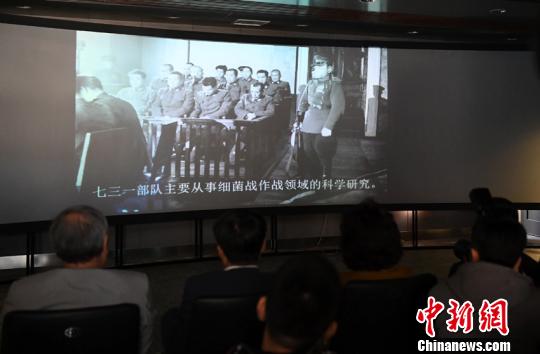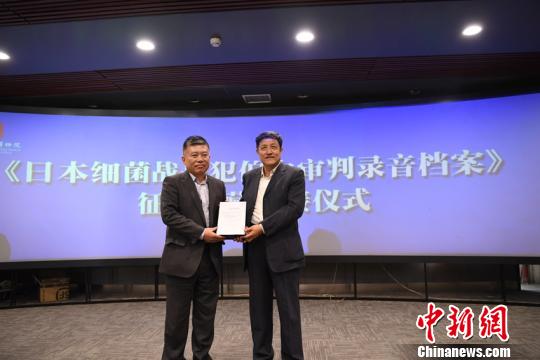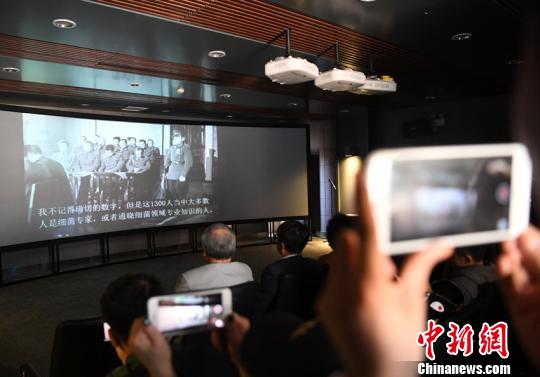
BEIJING, Changchun, May 7 (Guo Jia) On the 7th, the Puppet Manchuria Palace Museum in Changchun officially received the "Boli Trial Recording Archives" collected from the Russian National Recording Archives, so the Puppet Manchuria Palace Museum became another unit in the world to obtain these complete recording archives besides NHK TV in Japan. The recording file revealed the crime of Japan secretly developing and using bacteriological weapons in violation of international conventions during World War II.
From December 25 to 29, 1949, the Soviet Union set up a special military court in Boli, Far East (that is, the military court of Binhai Military Region) to publicly try 12 Japanese bacterial war criminals for their bacterial war crimes. This trial is the first international trial for bacteriological war crimes in human history after World War II, which has created a precedent for human beings to openly try bacteriological war crimes.

This batch of "Boli trial audio files" handed over this time is 22 hours, 5 minutes and 57 seconds long. The main content is the audio recording materials of the whole process of the trial of "former Japanese soldiers who made and used bacteriological weapons", involving war criminals, including members of the 731st and 100th Japanese troops.
According to the introduction of the Puppet Manchuria Palace Museum, these audio files were jointly collected by Hunan Red Memory Culture Foundation, the Criminal Evidence Exhibition Hall of the 731st Japanese Invaders and the Puppet Manchuria Palace Museum in the Russian National Recording Archives.
On the day of the handover ceremony, Cao Yunshan, the descendant of Mao Zemin martyr and chairman of Hunan Red Memory Culture Foundation, handed over the "Boli trial audio file" and trial photos to Wang Zhiqiang, director of Puppet Manchuria Palace Museum.
During the war of aggression against China, the 100th Japanese Army stationed in Changchun, China, was one of the main forces in Japan’s germ warfare, mainly researching and manufacturing germ weapons for animals, plants and people and animals. In August 1945, after Japan’s defeat, the 100th Army destroyed all its facilities and sealed all its files, and its members withdrew to Japan, which led to the long-term concealment of the historical truth.
"The 100th Japanese Army and the 731st Japanese Army are both germ troops, but their crimes are even worse." Cao Yunshan said that his crimes have been covered up for a long time, and this recording file will help reveal the historical truth to the world.

"The research on the 100th Japanese Army is still in its infancy, and we will work with all sectors of society to fully and accurately present the neglected history to everyone." Wang Zhiqiang, director of the Puppet Manchuria Palace Museum, said.
According to the plan of the Puppet Manchuria Palace Museum, after editing and sorting out, these "Boli trial audio files" will be exhibited to the public as important exhibition materials of the "Special Exhibition of the 100th Army of the Japanese Invaders", and will also be included in the academic resource database of the Puppet Manchuria Palace Museum.